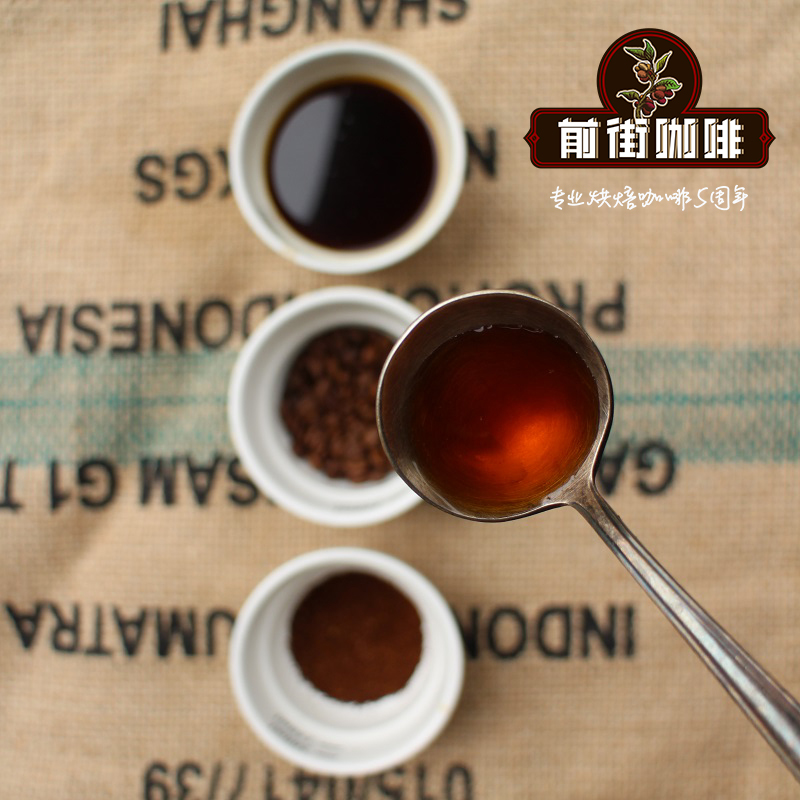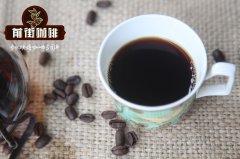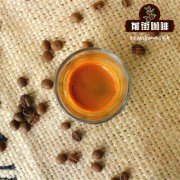Kawahibi / Cabewa Sipi Kabeywa SL in Uganda Micro-batch Sun Bean production area of Aigang Mountain

Professional coffee knowledge exchange more coffee bean information please follow the coffee workshop (Wechat official account cafe_style)
The flavor characteristics of kawahibi / kabewa Sipi Kabeywa SL14 in Uganda micro-batch sun bean production area of Aigang mountain?
From Wakahibi in Uganda, bean seed is SL14, a boutique variety promoted by the Ugandan government in recent years. There is no doubt that this is by far the most amazing Uganda. On the one hand, Waka is an extremely high-level organic treatment plant, and this is a rare micro-batch of solarization in Uganda. The Kawa Cooperative is the first organization in Africa to participate in the Organic Sustainability Program, which was launched in 2002 and became the first coffee in Africa to receive UTZ CERTIFIED certification. Compost is used for good shading. Kawa's washing plant is equipped with first-class equipment and focuses on handling cherries sent by farmers. on the same day, the peel and pulp are mechanically removed and strict washing procedures are followed. Kawa collects cherry fruits from nearby farmers at nine locations and names them at different elevations and collection points. Kawa, who won the championship this season, was collected in "Kabeywa", the runner-up beans also came from Kawa, and the collection point was in Masira. In fact, different batches of Kawa in the new production season in 2017 won seven of the top 10 in TOH, including the first three, which are all different batches of "Kawahibi", which is incredible!
Every year, major coffee producing countries in Africa hold a national raw bean competition called "The Taste of Harvest; TOH", similar to the Cup of Excellence in Central and South America. TOH has become an arena for discovering the best coffee in Kenya, Ethiopia, Uganda and Congo.
The 2017 Harvest season Flavor Competition in Uganda was won by "Kawa Cooperative / Cabewa" (Kawacom/Kabeywa). Fisher coffee from Qingdao, China won the bid!
Many people think that Uganda only produces Robusta, but in the Mount Elgon region of Uganda's eastern Kapchorwa province, which borders Kenya, coffee is as good as boutique Kenya. The Kawa Farmers' Cooperative (Kawacom Farmers' Group), which won the harvest season, is located in Aigang Mountain. It was founded in 2000 and has grown from 5000 farmers at first to more than 10, 000 farmers now. The scale of individual farmers is very small, with coffee trees ranging from 200 to 500, mixed with other crops such as bananas and soybeans, with an average farmland of only 0.5 hectares. in the past, farmers tended to use crude peeling machines to deal with fresh cherries, and after Kawa built a first-class washing plant, he strongly persuaded farmers to send cherries to the central processing plant to improve their quality.
The varieties planted by Ugandan farmers are SL14 and SL28,SL, which come from the research and development and selection of Scott Lab. Kenyan coffee is famous for SL28 and SL34, so the Ugandan government vigorously promotes and distributes SL seeds to farmers. Among them, SL14 not only has good flavor and drought resistance, but also can be harvested after planting for two years, which meets the needs of farmers.
Aigang Mountain is a still volcano. It is said that it was once the highest peak in Africa. Local people believe that gods live on the top of the mountain, far beyond the reach of mortals. When the gods are happy, there is plenty of rain and dew, the whole hillside benefits, everything grows and is green. Kawa members' coffee gardens are scattered in Aigang Mountain. After the volcanic activity ceased, a huge volcanic crater was formed at the top of Aigang Mountain, which was then saved into a lake and diverted streams to irrigate crops on the hillside. During the rainy season, the stream rises sharply, forming a spectacular waterfall, of which the waterfall of "Sipi" is the largest, falling 200m.
Starting from 2015, Kawa not only does washing treatment, but also does micro-batch sun treatment, first removing unqualified floating beans, and then drying in the sun for three weeks, during which the fresh fruit is constantly turned to avoid fermentation or mildew. to achieve a very clean and rich flavor.
The Ugandan TOH champion bean was planted by farmers near Kabewa, tanned in the Kawa washing plant, and won the bid by Fisher Coffee from Qingdao, China. Zhang Rong, the chief baker of Fisher, has deep feelings about this bean:
"this bean has made a big difference to Ugandan coffee, which is rising like a new star of boutique coffee on the African continent compared to Ethiopia and Kenya. In the sun beans popular today, elegant sun flavor, combined with the flavor characteristics of the coffee producing area, this kind of sun coffee is the most fascinating to me. This Ugandan coffee is the first coffee that excites me in this year's new season. In the baking stage, the coffee uses less initial firepower and a slower baking rhythm to express the multi-layered flavor of this coffee, agstron89. "
Country of production: Uganda Uganda
Producing area: Mount Elgon;Kapchorwa Province, Aigang Mountain; Eastern Uganda, East Uganda
Farm: Kawa Farmers' Cooperative Hibby Project Kawacom Farmer's Group, Sipi
Producer: small farmers near the Cabewa collection point Kabeywa
Altitude: 1700-2000 m
Variety: SL14
Treatment: insolation
Winning record: The Taste of Harvest, winner of the 2017 Uganda Raw Bean Flavor Competition
Qianjie recommended cooking:
Filter cup: KONO filter cup
Water temperature: 88 degrees
Degree of grinding: small Fuji degree of grinding 4
Cooking method: the ratio of water to flour is 1:14, 17g powder, 25g water for the first time, steaming for 30s, and 238g water for the second time. The extraction time is about 2:30 seconds.
Analysis: there are not many ribs at the bottom of the Kono cup, and the filter paper clings to the filter cup to achieve the purpose of limiting air flow, which can make water and coffee powder have longer contact soaking time in the filter cup and ensure the extraction time and extraction rate of rough grinding. In this way, the coffee powder can be fully extracted, enhance the mellow taste and make the taste more concentrated.
Flavor: well balanced, clean, thick and solid on the palate, with a long dark chocolate finish.
Important Notice :
前街咖啡 FrontStreet Coffee has moved to new addredd:
FrontStreet Coffee Address: 315,Donghua East Road,GuangZhou
Tel:020 38364473
- Prev

Panamanian Coffee theme | what are the estates of Panamanian Coffee?
Professional coffee knowledge exchange more coffee bean information please follow the coffee workshop (Wechat official account cafe_style) Panamanian coffee there is any estate Esmeralda Manor Let's meet the famous Panamanian emerald-Esmeralda Manor. Panamanian coffee is basically grown in a manor, and most of the owners of the estates are wealthy families, if you visit him.
- Next

What is the development trend of Panamanian coffee? What are the advantages of Panamanian coffee?
Professional coffee knowledge exchange more coffee bean information Please follow the coffee workshop (Wechat official account cafe_style) now the trend of coffee in Panama is also changing coffee cultivation is becoming more environmentally friendly and farmers will plant, harvest and handle sustainably. More international purchasers and cup testers choose to visit the quality of coffee in Panama.
Related
- Detailed explanation of Jadeite planting Land in Panamanian Jadeite Manor introduction to the grading system of Jadeite competitive bidding, Red bid, Green bid and Rose Summer
- Story of Coffee planting in Brenka region of Costa Rica Stonehenge Manor anaerobic heavy honey treatment of flavor mouth
- What's on the barrel of Blue Mountain Coffee beans?
- Can American coffee also pull flowers? How to use hot American style to pull out a good-looking pattern?
- Can you make a cold extract with coffee beans? What is the right proportion for cold-extracted coffee formula?
- Indonesian PWN Gold Mandrine Coffee Origin Features Flavor How to Chong? Mandolin coffee is American.
- A brief introduction to the flavor characteristics of Brazilian yellow bourbon coffee beans
- What is the effect of different water quality on the flavor of cold-extracted coffee? What kind of water is best for brewing coffee?
- Why do you think of Rose Summer whenever you mention Panamanian coffee?
- Introduction to the characteristics of authentic blue mountain coffee bean producing areas? What is the CIB Coffee Authority in Jamaica?

